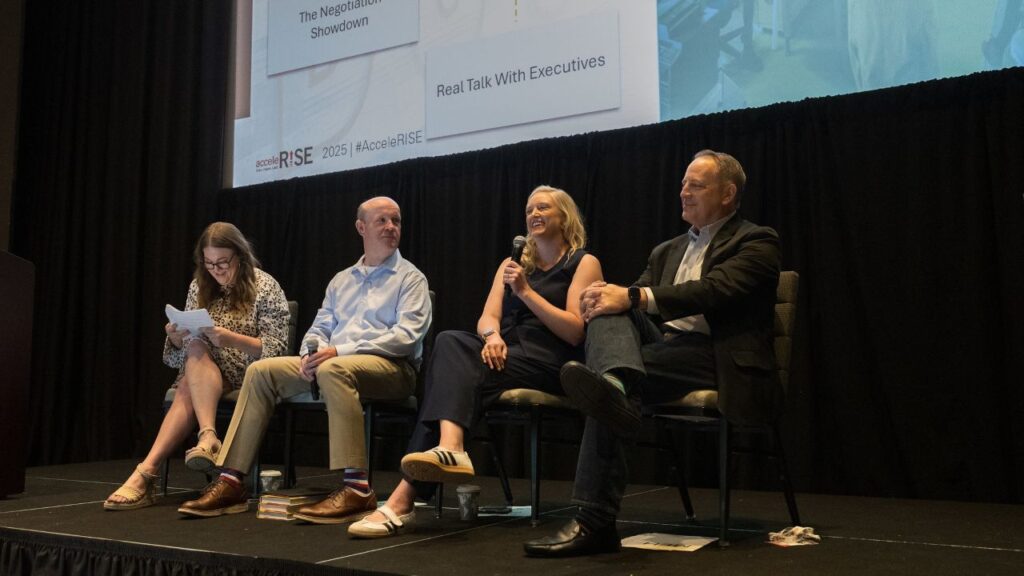How to Negotiate Like a Pro

At AcceleRISE 2025, SIA CEO Don Erickson and PSA’s Matt Barnette, Candice Aragon and Brooke Erickson shared strategies, considerations and tools for negotiating.
Negotiation is a useful and important skill for everyone—whether at work or at home—and effective negotiation tactics have evolved over time. In an interactive, candid conversation at the 2025 AcceleRISE conference, PSA CEO Matt Barnette, chief experience officer Candice Aragon and senior director of learning and marketing Brooke Erickson, as well as SIA CEO Don Erickson, challenged traditional views on negotiation through personal stories, generational and gender perspective shifts and tactical insights from their unique leadership journeys.

Here are some top tips and takeaways on how modern negotiation works and how to do it well:
- Expand your definition of negotiation and how it can be used and experienced. “Many of us think about major career moments when we think about negotiation,” said Brooke Erickson, pointing out that negotiation should instead be a “daily practice” and leadership tool that can be used in many aspects of work and personal life, including in conversations with colleagues, superiors, family members and significant others. Matt Barnette pointed out that parents can practice negotiating every day with their children and recommended leveraging the LEAP strategy (listen, empathize, agree, then persuade).
- Hone your emotional intelligence to excel in negotiation. Emotional intelligence and being able to empathize with the person you’re negotiating with are critical to a successful negotiation—and to work performance in general, with emotional intelligence explaining a full 58% of success in all types of jobs. Brooke Erickson emphasized that “if you build trust with the person, you’re more likely to be able to win in a negotiation … [if the] person understands the value you bring and understand you, they might be more inclined to negotiate with you,” whereas Candice Aragon encouraged professionals to try to understand the other person’s perspective and where they’re coming from, “not just thinking about it from your lens. What are their values? What will persuade them?” Don Erickson also pointed out that employers and supervisors should leverage emotional intelligence when faced with a staff member who is negotiating for salary or a promotion, suggesting that employers “think about what is really important to the person negotiating—what they are really wanting” and use that insight in the negotiation.
- Back up your ask. Candice Aragon and Don Erickson highlighted how, in a business or salary negotiation, it’s important to think about and be able to articulate the value you provide to the other party, rather than asking for more money or recognition for personal reasons. “There needs to be a value that is given for what you are receiving,” said Aragon, whereas Erickson discussed the importance of professionals “making the case for themselves in terms of what they’ve accomplished and what they could do for the organization.” Barnette and Erickson highlighted the importance of having data points to back up your arguments, including researching relevant salary data when looking for a new job or articulating the value that will result from what you are asking for.
- Have realistic expectations—and “understand that neither side will get 100% of what they want,” said Don Erickson, who encouraged people on both sides of a negotiation to hear out the other side and, if they are proposing a strategy that makes sense and there is no clear disadvantage, to consider buying in on their suggestions.
